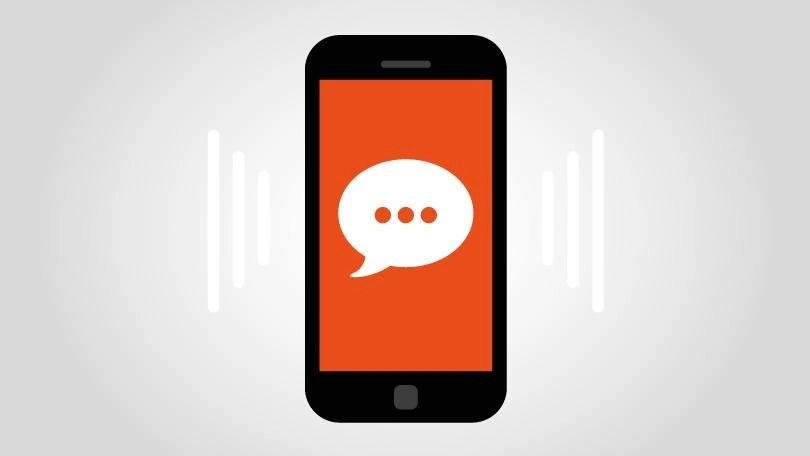How To Block Text Messages On iOS And Android
Getting too many unwanted text messages in your inbox? This guide explains how to block text messages on iOS and Android devices.
Author:Daniel BarrettJun 04, 2022115.9K Shares1.8M Views

Are you getting too many unwanted text messages in your inbox? This guide explains how to block text messages on iOS and Androiddevices.
There’s nothing worse than receiving unwanted text messages. Whether they’re from businesses spamming you with “special offers” or an ex who refuses to give you space and move on, it’s tiresome and obnoxious to see these messages pouring in continually.
Thankfully, the iPhoneallows you to block text messages from any number on your device in a few simple steps. You can block contacts already stored in your phone from contacting you or block unknown numbers not stored on your device.
When blocked, the owner of that phone number won’t be able to text or call you, though they won’t be informed that they’ve been blocked.
Here’s how to block messages on your iPhone
- Open the Messages app on your iPhone.
- Open the text message from the number or contact you wish you block.
- Tap the number or contact at the top of the message, then click the small info button.
- On the Details screen, tap the right-facing arrow next to the name, phone number, or address texted you.
- Tap “Block this Caller.”
- From the pop-up that appears, tap “Block Contact” again to confirm.
How to unblock a number on your iPhone
- Note that you can see and edit your blocked contacts by opening the Settings app from your iPhone’s home screen, then tapping Messages.
- Next, tap “Blocked Contacts” under the SMS/MMS section.
- You can remove a contact or number from the blocked list by swiping left, then tapping “Unblock.”
Blocking texts on Android
Block text messages on a Samsung phone
Like a Google phone, Samsung phones such as the Galaxy S21 or Galaxy S21 Ultra have two ways to block messages.
One method involves opening Messages and then choosing the conversation containing the contact you want to block. Tap the More icon, select Block number, and toggle to check to Delete conversation if you like. Then, tap OK.
Or head to Messages > More > Settings. Tap Block messages, then Block numbers, where you can manually enter the contact’s number, tap the + sign, or choose from your inbox or contacts list. Tap the back arrow when you’ve entered all the numbers you want to block.
Block text messages on an LG phone
Got an LG Wing? Good for you! Still, rocking the LG Velvet? No problem! LG’s blocking process is relatively quick and straightforward.
Start by opening LG’s messaging app and tapping the SMS or MMS message you want to block. Then, tap the three dots in the upper-right corner, then tap the Block number to confirm your choice.
The number should now be blocked.
Block text messages on a Google phone
There are two ways to block messages on a Google phone, such as the Pixel 5 or Pixel 4.
The first is to open the Messages app, then open or start a conversation with one of your contacts. Next, tap More — represented by three vertical dots — select Details, and tap Block & Report spam.
You can also open the Messages app, touch and hold the conversation you want to block, and tap the Block icon when the option appears in the top-right corner.
Block text messages on an HTC phone
Much like LG’s blocking process, HTC’s way of blocking unwanted messages is quick and easy.
Open Messages, then tap and hold the desired text conversation until the Message options appear. Then, tap Block contact.
Block text messages using your carrier
Many mobile carriers provide services and additional settings to help their customers block messages from specific numbers, like those from telemarketers.
T-Mobile has Message Blocking, Verizon has Block Calls & Messages, Sprint requires using Limits and Permissions via My Sprint, and AT&T has Secure Family.
Block texts with third-party apps
There are dozens of apps in Apple’s App Store and Google’s Play Store that provide you with more ways of blocking numbers and messages.
We recommend checking these out if you decide to go with that option, but be aware of the potential privacy issues inherent in sharing your contacts.
Also read:How To Block Websites On Your Mac
Should I Answer? (free)
Should I Answer?is the best and our favorite choice for a call-blocking app. It includes an active forum that reviews and rates various phone numbers and shares other information, making it easy to tell if a phone number is legitimate, a bot, a telemarketer, or a scam.
It’s easy to block numbers online or off, and there’s an option to block any or all numbers outside of your contacts list. So yes, this text-blocking software accesses your contacts. However, the developer promises your contacts remain private without shares or uploads, and contacts are only accessed to check against incoming phone calls.
Sadly, this app isn’t compatible with iPhones.
Hiya Caller ID and Block (free)
This call-blocking app works off a massive database with millions of phone numbers to identify and flag telemarketers, robocalls, fraudsters, and debt collectors. This app lets you make a list to block numbers or reverse-search numbers from your phone calls log. Hiya’s downside is that it accesses your contacts and puts them into their database in an encrypted format.
The company guarantees they will never sell your contacts and can only access them to form white lists and match information. Still, look at the privacy policy to be on the safe side. Hiya was developed by the same folks behind Mr. Number, another widely used app.
Truecaller (free)
Truecaller, the next in line from the well-regarded True messenger app, works much like its predecessor by alerting you to a spam call or message. As soon as the app detects spam, it will block the senders so they can’t call and text you anymore. In addition, the app’s robust Caller ID system identifies any unknown numbers that harass you.
Over 250 million people use this app, so you know it’s got to be good, especially since they can share contact data with the spam callers.
Even though your phone book will be accessed so Tuecaller can block spam, the company reassured us that Truecaller would not compromise user privacy.
While the app accesses your phone book for its Caller ID tool, it won’t take or use any information you have stored there. You don’t have to take our word for it: check out the privacy policy (or the easy-to-skim abridged version) for yourself to make sure you feel comfortable using this app.
If you found this article very, kindly leave a comment in the comment section.
Editor’s picks:
Jump to
Here’s how to block messages on your iPhone
How to unblock a number on your iPhone
Blocking texts on Android
Block text messages on a Samsung phone
Block text messages on an LG phone
Block text messages on a Google phone
Block text messages on an HTC phone
Block text messages using your carrier
Block texts with third-party apps
Should I Answer? (free)
Hiya Caller ID and Block (free)
Truecaller (free)

Daniel Barrett
Author
Daniel Barrett is a tech writer focusing on IoT, gadgets, software, and cryptocurrencies. With a keen interest in emerging technologies, Daniel offers expert analysis and commentary on industry trends. Follow him for authoritative insights into the latest tech innovations.
Latest Articles
Popular Articles